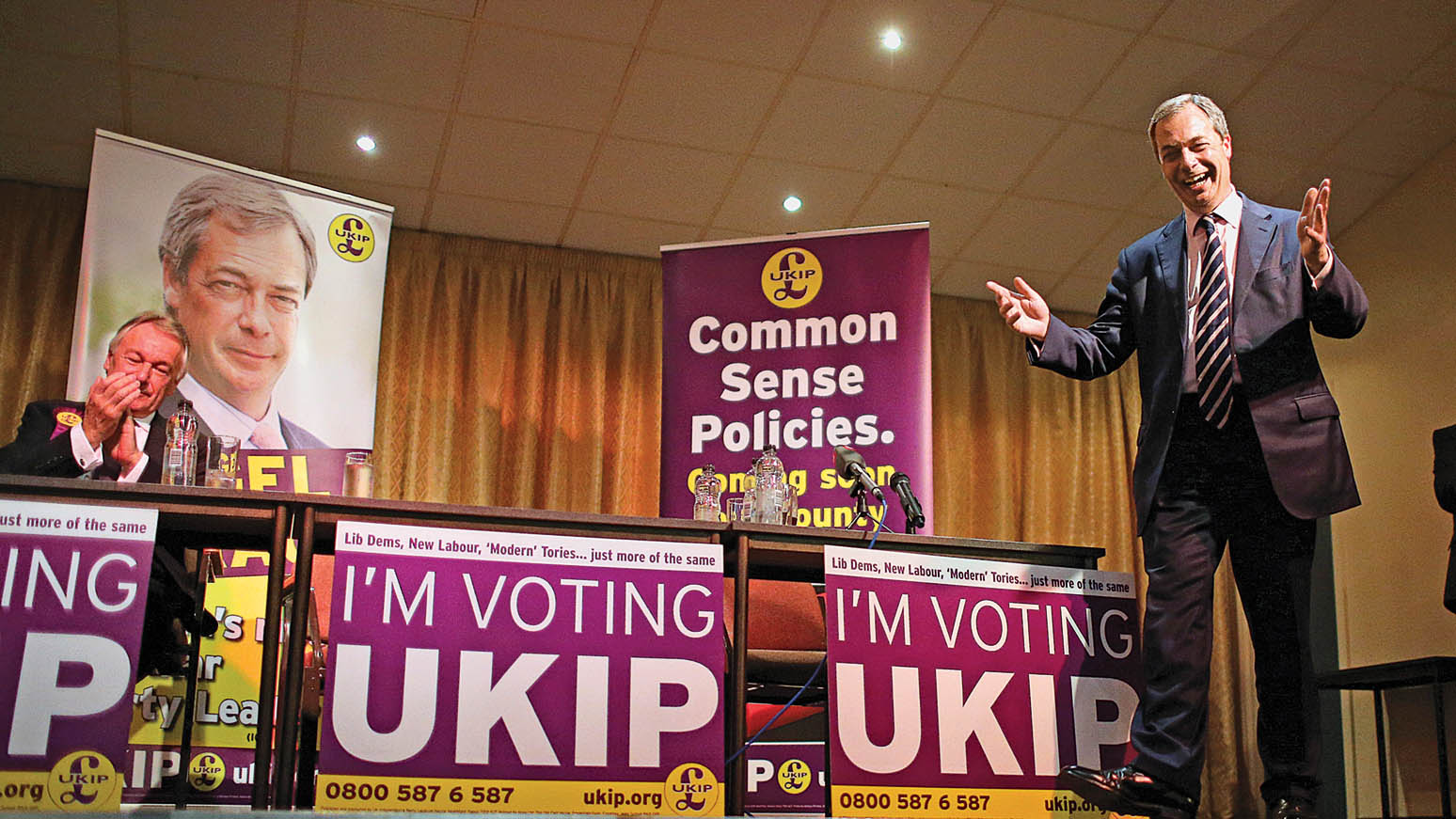What the world learned from Beaver River
Colby Cosh on Preston Manning’s remarkable influence across the pond
Christopher Furlong/Getty Images
Share

Farage is “frit,” they’re saying. That’s north-of-England talk for “frightened.” Margaret Thatcher famously hurled the Chaucer-oid insult at Labour’s Denis Healey during a 1983 debate in the House of Commons. It is now being flung at Nigel Farage, leader of the schismatic-conservative U.K. Independence Party, for evading a by-election opportunity in Tory-held Newark. Although Farage may now be the greatest single threat to the Conservative Party, he reveres Thatcher. Among his other major role models is a fellow by the name of Preston Manning.
I was just shy of 18 when Deb Grey won Reform’s first seat in the riding of Beaver River, which then stretched from Edmonton’s outskirts to the Saskatchewan border. I lived in the riding, and it would be useful to me to have a good story or two. But don’t hold your breath. Grey finished fourth in the 1988 general election—not even a strong fourth. Our new Conservative MP, never sworn in, dropped dead five days later.
His widow lost the ensuing nomination fight, which, along with her acceptance of a modest Commons severance cheque, occasioned some ill feeling. Grey, destined to become as fond and familiar as Santa Claus, steamed up the middle. Thus was the fuse lit for the annihilation and reconstruction of Canada’s founding party.
To Nigel Farage, the euroskeptic scourge of England’s old-line parties, this tale carries monumental weight. “Beaver River” is practically his Alamo, his Field of Blackbirds. He visited the Manning Centre’s annual conference to pay homage in March 2013, sharing a stage with another foreign admirer of Canadian conservatism, soon-to-be Australian PM Tony Abbott.
Farage’s UKIP has never won an election to the House of Commons, but it has finished second in five consecutive English by-elections, and it was second in the most recent European Parliament vote. In general election polling it has been ahead of the traditional third party, the Liberal Democrats, since the beginning of 2013.
In April, Lib Dem leader and Deputy PM Nick Clegg challenged Farage to a televised debate on the European Union, hoping to chasten him. If it had been a boxing match they would have cut away to spare viewers the carnage. Dazed Clegg, his career in even deeper trouble than before, was left mumbling, “It’s a marathon, not a sprint.”
Farage, a right-libertarian who wants to grab British sovereignty back from the EU, often gives the impression of not being in any hurry to get UKIP into the House of Commons. He is happy to use his European Parliament platform and funding to trash the European Union; to run against the media (in trademark Stephen Harper fashion) while quietly winnowing UKIP’s worst ninnies; and to keep being photographed enjoying cigs and pints. (In a recent GQ interview he was asked if he had ever done drugs. He replied that he started smoking and drinking so early that by the time he was grown he figured he had enough vices. For once, such an excuse rings true.)
U.K. observers often plunk Farage into a triad of improvisational, intuitive “anti-politicians” along with Scottish First Minister Alex Salmond and the maverick Tory mayor of London, Boris Johnson. When the Newark seat came open April 30, it looked for a moment as though a head-to-head Boris-vs.-Farage combat might happen. Col. Patrick Mercer, a caricature military type laden with decorations from Northern Ireland and Yugoslavia, was the incumbent. Mercer was caught taking cash for parliamentary questions without making a proper lobbyist-registry declaration, and resigned quickly to create maximum trouble for Conservative PM David Cameron, whom he loathes.
Johnson, darling of the Conservative backbenches, is thought to be looking to squeeze back into the House of Commons while remaining London’s mayor. But he begged off. Farage, on hearing that Newark was open, asked UKIP members for an evening to think it over. Early the next morning, he announced his refusal on BBC Radio Four. He intends, he said, to stick to the Canadian plan.
In 1989, Manning, as leader of the year-old Reform party, had considered running for that tantalizing open seat. But as important as Manning was, and as natural as it still is to equate him with Reform, he recognized that it was not all about him—that the perception of Reform as a one-man band would ultimately do the movement in, as it will UKIP unless some credible peers rise to join the crafty Farage. It was probably a little lucky for Reform that Deb Grey turned out to have a natural genius for campaigning, but perhaps making room for luck is what effective leaders do.